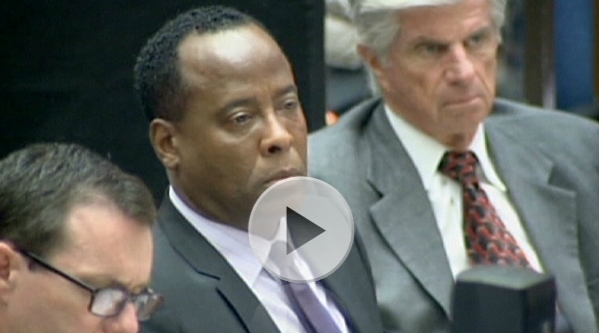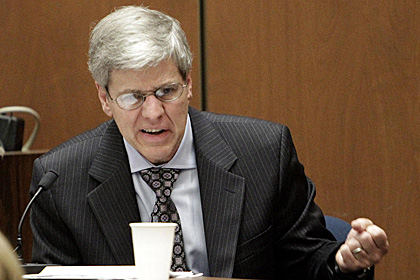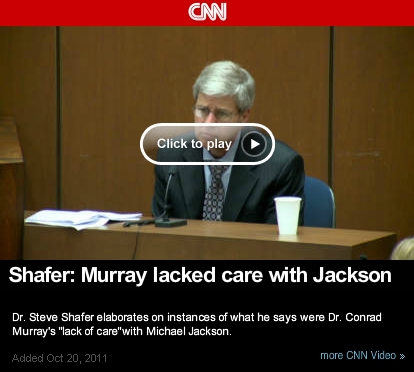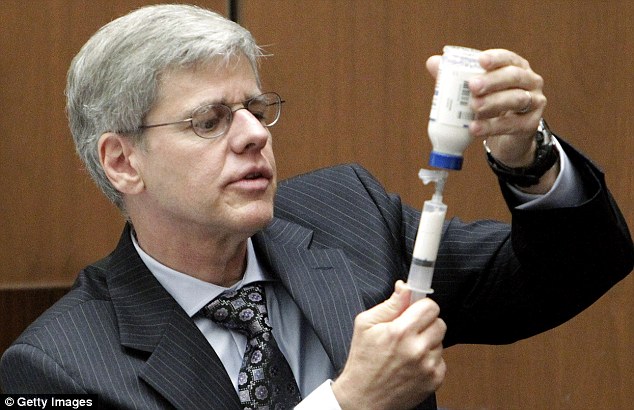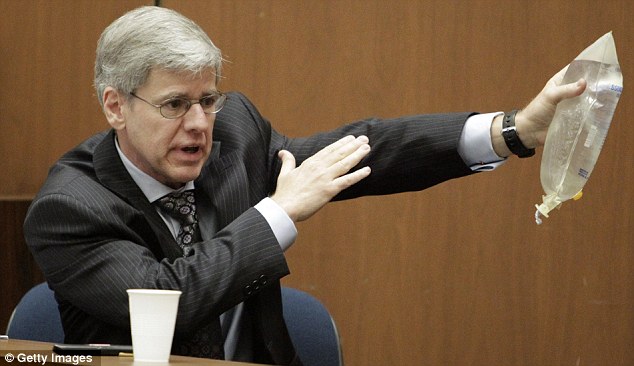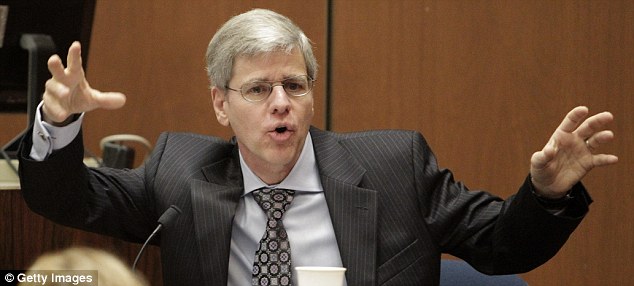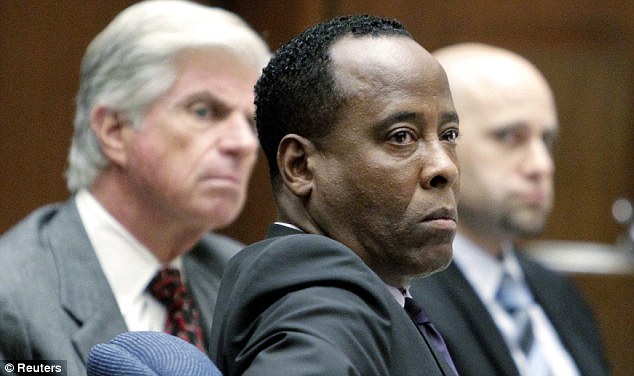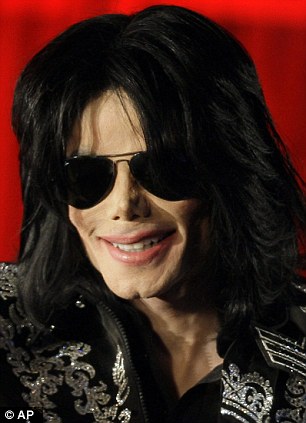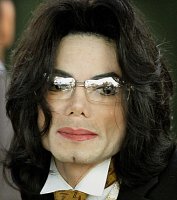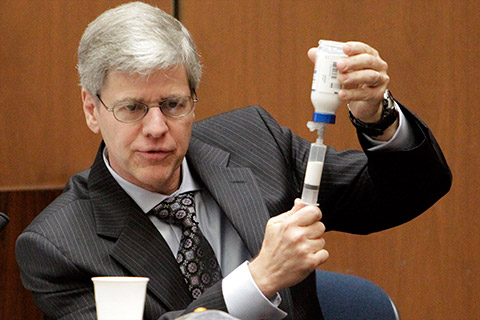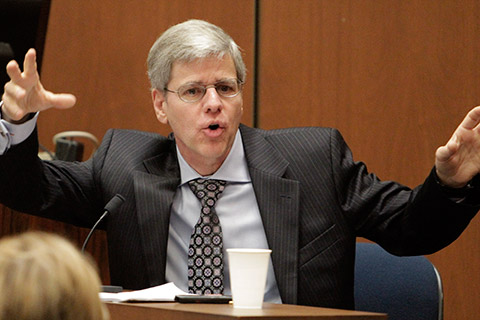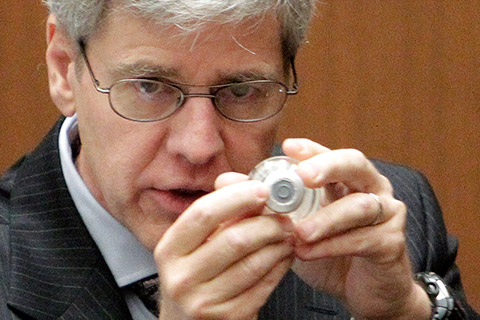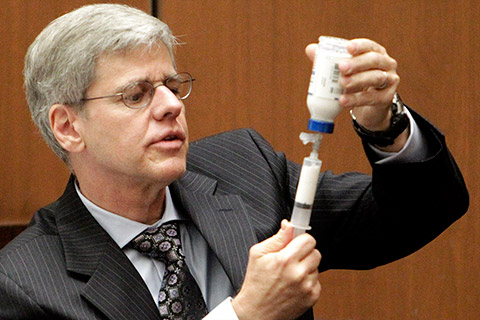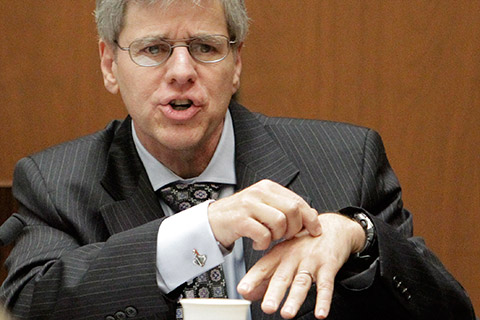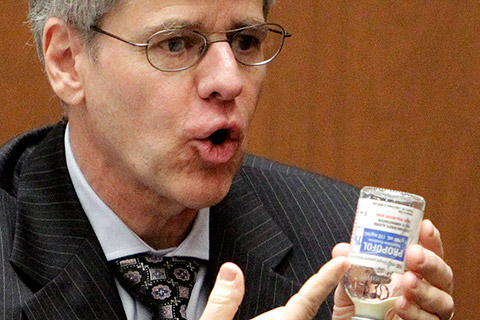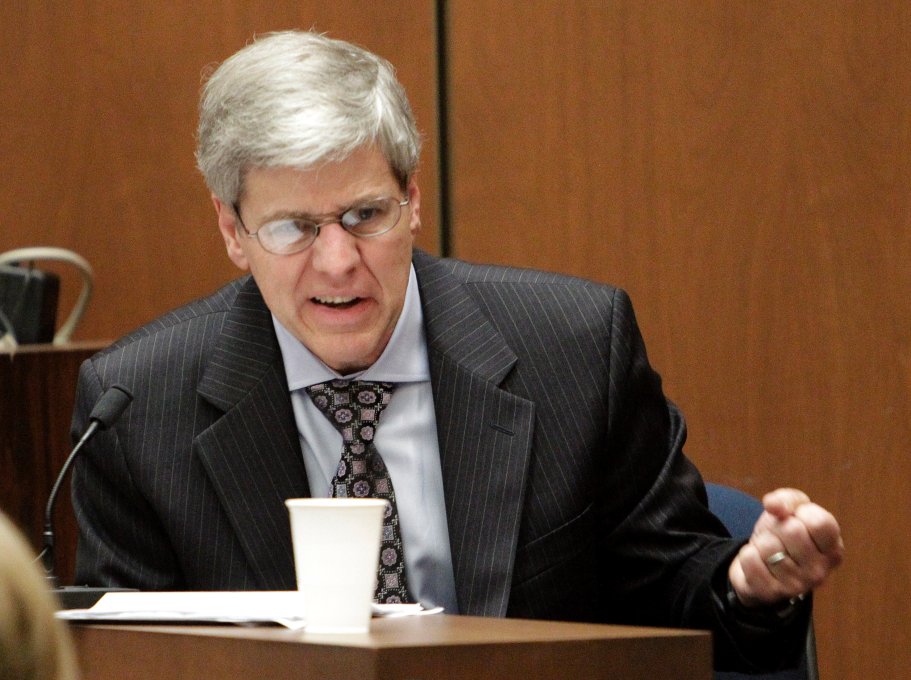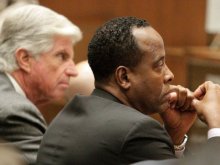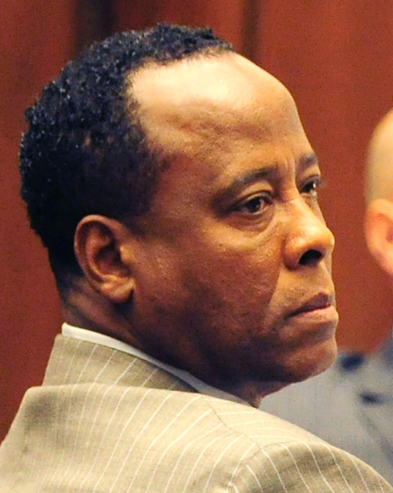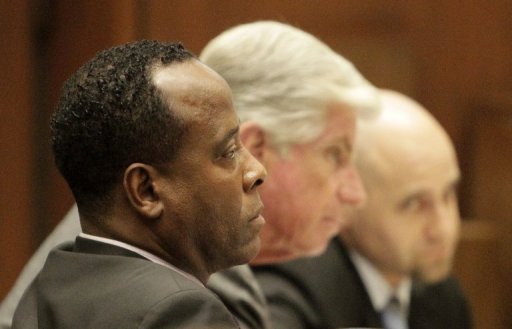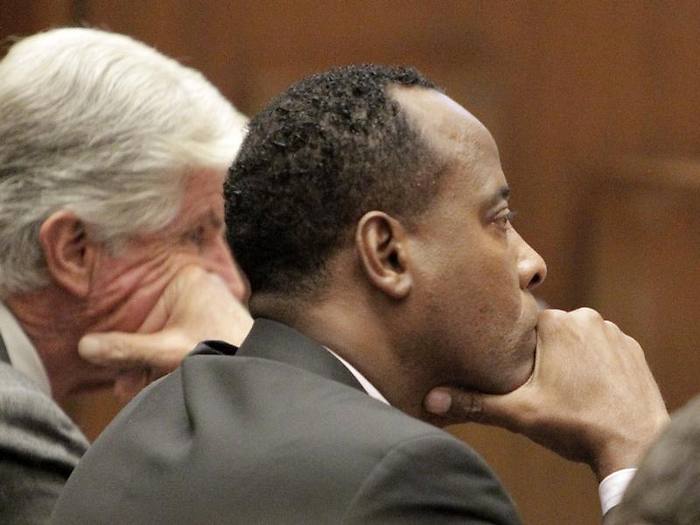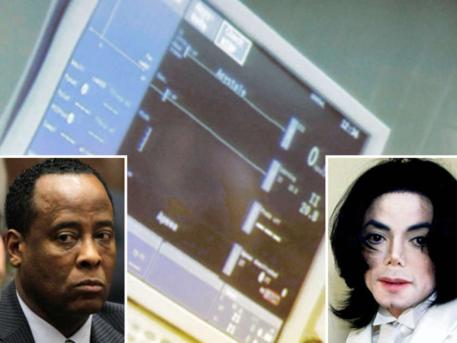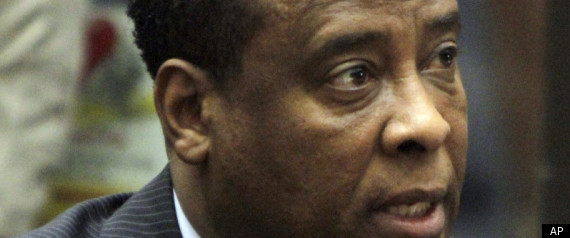Prosecutors expected to complete direct presentation in Murray trial
By Alan Duke, CNN
October 20, 2011 -- Updated 0519 GMT (1319 HKT)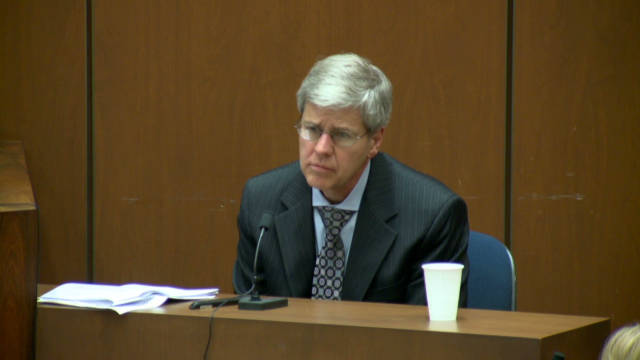 Shafer: Murray lacked care with JacksonVIDEO im Bericht
Shafer: Murray lacked care with JacksonVIDEO im Bericht Los Angeles (CNN) -- Prosecutors in the involuntary manslaughter trial of Dr. Conrad Murray are expected to complete their direct presentation Thursday.
The following day, the defense makes its case why Murray should not be held liable in the death of singer Michael Jackson.
On Wednesday, an anesthesiologist testified that Jackson "most likely" died because his tongue blocked the back of his throat, but that he could have been saved if Murray had used "a simple chin lift" when he realized the pop icon had stopped breathing,
A cardiologist previously testified that he thought Jackson died of respiratory arrest, but Dr. Steven Shafer expanded on the theory, saying, "The most likely thing that happened was airway obstruction."
"Michael Jackson was trying to breathe, but the tongue had fallen in the back of the throat," Shafer said. "Either a simple chin lift, just that alone, or an oral airway to move the tongue out of the way might well have been all that was required to save his life."
Shafer, probably the prosecution's last witness before the defense starts its case, said Jackson would be alive now but for 17 "egregious deviations" by Murray from the standard of care required of physicians.
Murray's use of propofol almost every night for two months to help Jackson sleep was so unusual, there is no documentation on the dangers, Shafer said.
"We are in pharmacological never-never land here," Shafer said. "Something that's only been done to Michael Jackson."
Shafer is crucial to the state's effort to prove that Jackson's death was caused by the doctor's gross negligence in using propofol to help the entertainer sleep while he was preparing for his "This Is It" comeback concerts in London. The prosecution contends that Murray's use of propofol was so reckless that it was criminal.
The Los Angeles County coroner ruled that Jackson's June 25, 2009, death was caused by "acute propofol intoxication" in combination with several sedatives.
Jurors watched a video presented Wednesday by Shafer showing what he said was the safe way to administer propofol, including the use of monitoring equipment to measure a patient's vital signs and the availability of emergency equipment in case of complications.
"The facts in this case, in my view, suggest that virtually none of the safeguards for sedation were in place when propofol was administered to Michael Jackson," Shafer said.
One violation was Murray's reliance on a lower-end pulse oxymeter that did not have an alarm to let him know that the oxygen level in his patient's blood was low, Shafer said,
"That would have save Michael Jackson's life," Shafer said.
Murray failed to act as a doctor when Jackson asked to use propofol every night for two months to battle insomnia, Shafer said.
"The very first time Michael Jackson said 'I need propofol to sleep,' a doctor would say, 'You have a sleep disorder, and you need to be seen by doctors who specialize in sleep disorders and not having me show up with propofol,' " Shafer said.
Murray told police he left Jackson's side for only two minutes to relieve himself in the toilet, but Shafer said a doctor should never leave a sedated patient unwatched, "because it's very likely there's going to be a disaster."
"No matter how full your bladder is, you don't leave the steering wheel," Shafer said, comparing it to a driver going to the restroom while his motor home was barreling down a highway.
When a patient stops breathing it should be "no big deal" for a competent doctor who is prepared, Shafer said.
"If Dr. Murray had been at the head of the bed and next to Michael Jackson and saw Michael Jackson stop breathing, he would simply have opened up the route for air, either chin lift, something simple, or perhaps ventilate Michael Jackson's lungs with that mask and that squeeze bag that I showed you and then nothing would have happened. There would have been no adverse outcome at all."
Murray appeared "quite clueless" about what to do when he returned from the toilet and realized Jackson was not breathing, Shafer said.
Even without proper emergency treatment from Murray, Jackson "would be alive, but with neurological injury," if paramedics had been called immediately, he said.
Shafer's video showed doctors and nurses reviving a pretend patient using equipment, drugs and staffing Murray did not have at Jackson's home.
"It's a terrifying dramatization of a person experiencing cardiac arrest, complete with visual effects," defense lawyer Ed Chernoff said in his argument against letting jurors see the video.
While Chernoff argued that it was designed to "inflame the jurors' minds," Deputy District Attorney David Walgren said it was intended only to inform them about the safe methods of administering propofol.
Los Angeles County Superior Court Judge Michael Pastor ordered Walgren to edit several segments from the video, but he allowed much of it to be shown in court, including a demonstration of what happens when a patient experiences cardiac arrest while under propofol.
Shafer, who is one of the world's foremost experts on anesthesiology, testified that he is not being paid for his testimony because he did not want people to think money would influence his testimony.
"This is just a Steve Shafer thing," Shafer said.
He agreed to testify at no charge because he feared that the publicity surrounding Jackson's death had harmed "the reputation of physicians," Shafer said. "I felt a need to help restore confidence that physicians put patients first."
"As an anesthesiologist seeing sedation given in ways that do not reflect how anesthesiologists practice, I wished to present how an anesthesiologist approaches sedation so that patients are not afraid," he said.
Propofol, which he regularly uses, has been given a bad reputation, he said.
"I am asked every day, 'Are you going to give me the drug that killed Michael Jackson?' " Shafer said. "This is a fear patients do not need to have."
Prosecutors said they will conclude their direct presentation Thursday, but rebuttal witnesses could be called next week after the defense rests its case. The defense starts on Friday.
Murray faces a maximum sentence of four years if convicted of involuntary manslaughter, but a new California law could mean the doctor would never see the inside of a state prison cell.
The law, intended to reduce state prison overcrowding, provides for most nonviolent offenders with no prior record to be kept in county jails.
A four-year sentence could become two years if Murray is ordered to serve his time in the Los Angeles County jail, according to sheriff's spokeswoman Nicole Nishida.
In addition, the Los Angeles jail is under court order to reduce overcrowding, which means many nonviolent first-time offenders are allowed to serve the bulk of their time under supervised house arrest.
A conviction, however, would probably trigger the revocation of Murray's medical licenses in California, Texas and Nevada.
The trial, in its fourth week, is expected to conclude with the start of jury deliberations near the end of next week.
http://edition.cnn.com/2011/10/20/justice/california-conrad-murray-trial/index.html?iref=allsearch



